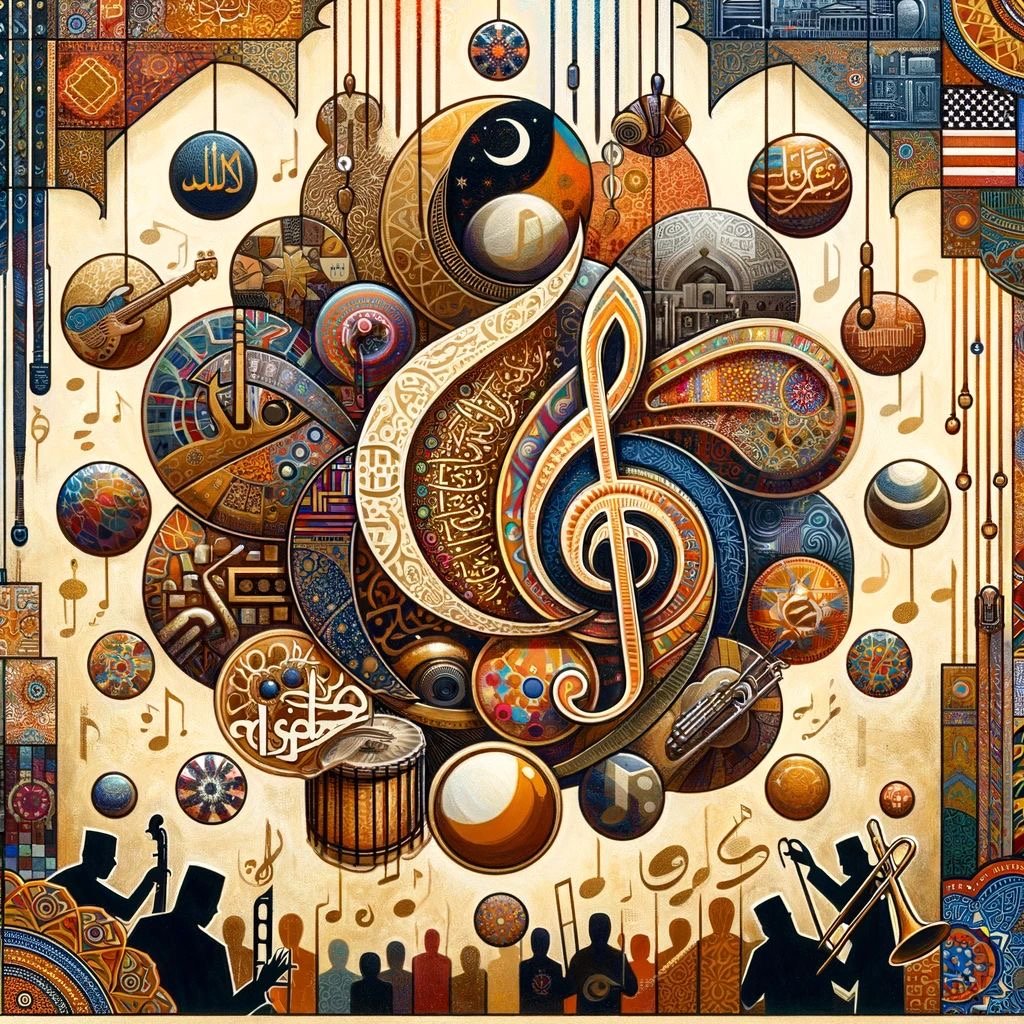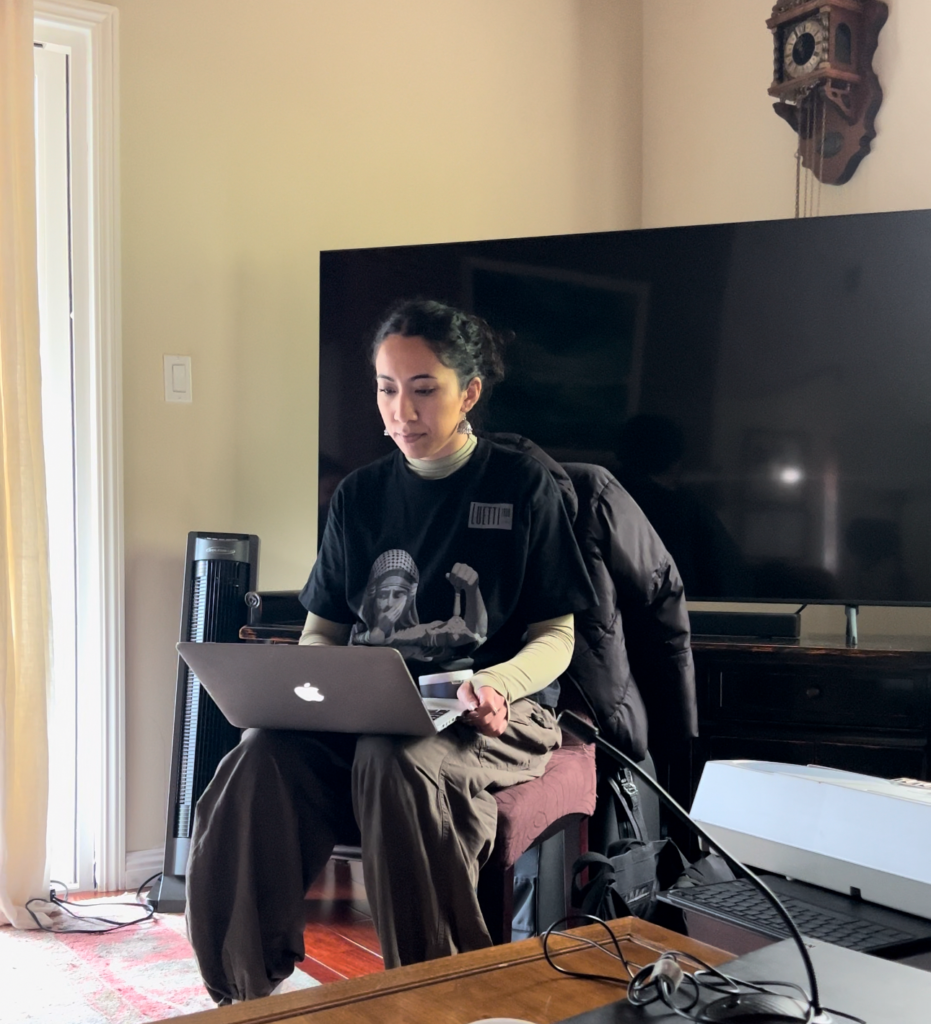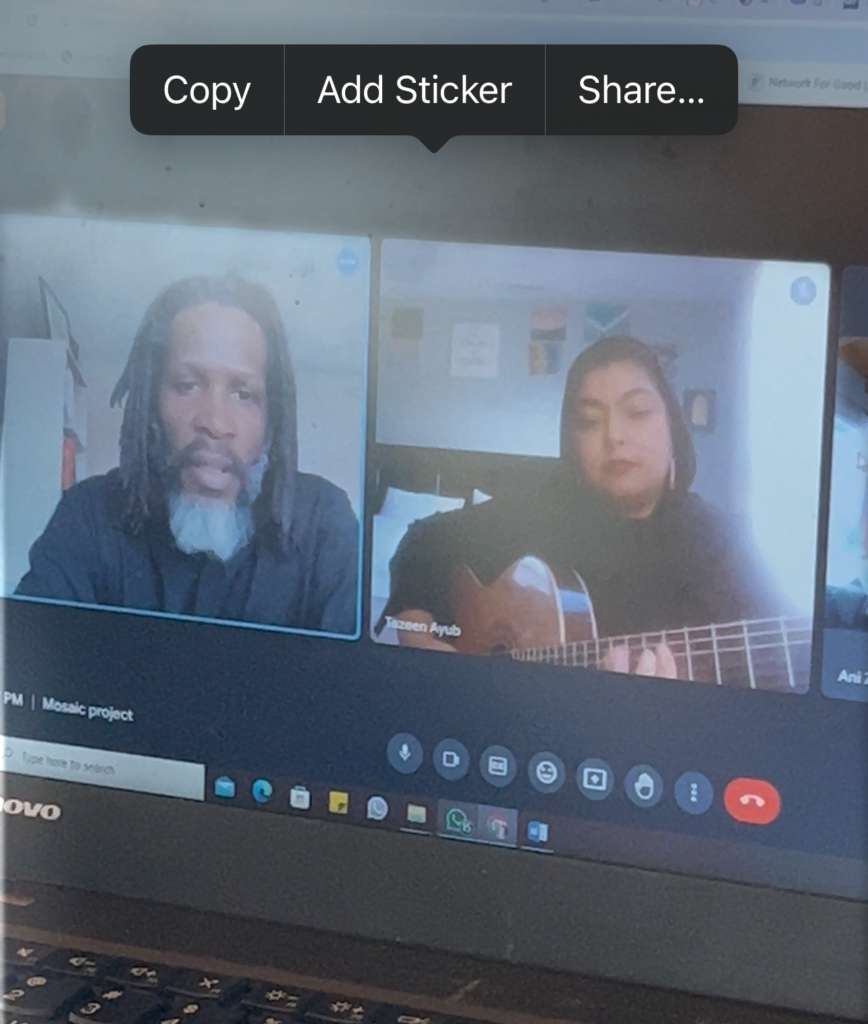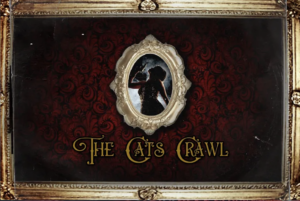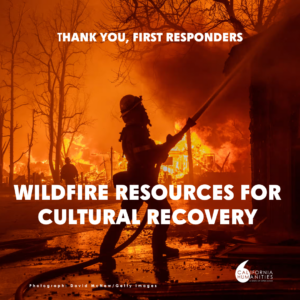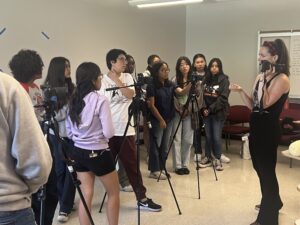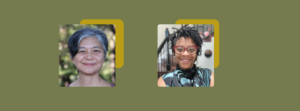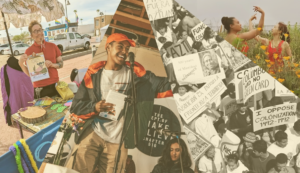Edit July 1, 2024: please see photos from the celebration, added below!
After hosting a series of music-focused “salons” with members of the Muslim American community in Los Angeles in the winter and spring of 2024, Muslims for Progressive Values (MPV) is hosting a free celebratory event of their first phase of work on their Muslim Musical Mosaic Project, set for June 30, 2024, at the Cat’s Crawl Theater in Los Angeles.
Supported by a fall 2023 Humanities for All Project Grant to MPV, Muslim Musical Mosaic Project aims to explore the role of music in the life of Muslim communities in LA and across the nation, and how Muslim Americans understand and interpret their traditions in the musical work they create, produce, and listen to.
The project began by convening a group of local scholars, cultural producers, activists, musicians, and nonprofit representatives who would bring various perspectives and insights. According to project director Ani Zonneveld, president of MPV and a musician and producer, “this diverse demographic background and musical experience was paramount to the project,” so that it would “reflect the very diverse demographic makeup representative of American Muslims.”


The Mosaic Cohort | Featured speakers and performers on June 30:
Alfred Madain is a musicologist and a multi-instrumentalist specializing in Nubian and Sufi musical traditions.
Ismaeel (LuFuki’s) is a composer, guitarist, historian, and cultural curator based in Detroit who views music as a spiritual practice that brings about healing and unity and whose artistic practice centers around Black ancestral legacy.
Farah Mitha is a pop singer, songwriter and producer of South Asian heritage whose productions have earned her a diversity of performing awards.
Tazeen Ayub is an educator, multi-instrumentalist, vocalist, curator, and community organizer. Using her voice and instrumentation (guitar, Bansuri flute, and swarmandal), she blends afro-indo sounds, while weaving elements from jazz, funk, soul, Sufi chants, and Indian classical music.
Aiman Khan is an experienced and versatile musician and performer, whose main instrument is the french horn and whose work spans many genres and mediums.
Ani Zonneveld is a singer/songwriter/producer as well as the founder and president of Muslims for Progressive Values. With more than 20 years in the music business, she is a Grammy certified songwriter and a cultural innovator.
Dr. Mark Levine is a Professor of Modern Middle Eastern History at the School of Humanities at University of California, Irvine, and serves as the humanities advisor for this project.
Zonneveld also shared how the Mosaic cohort defined the need for a new musical tradition:
“As a cohort, there was an agreement that despite the very rich musical history from our respective heritages, what was lacking is “that next thing”, a uniquely American Muslim musical tradition. We also agreed that some of the common denominators of our musical heritage were percussion, the maqam scale (Eastern scale), and a call-answer structure.”
The public event on June 30 will anchor the rich conversations held by the Mosaic cohort about Muslim American history and anthropology, with live performances as an illustration of that history as well as two new compositions: a blues rendition in Urdu and a modern rendition of the old gnawa music (Moroccan religious songs and rhythms combining ritual poetry with traditional music and dancing).
Performance details:
Date/Time: 5 to 6:30 pm, June 30, 2024
Location: The Cat’s Crawl Theater,
660 Heliotrope Drive Los Angeles, CA 90004
Edit: Below are some photos and video from California Humanities’ visit to the event, which beautifully combined humanities-focused discussion and musical performances. The hybrid performance-presentation-discussion event illuminated the ways in which Muslim cultural traditions and spirituality have helped to shape American music, from the origins of the blues in Saharan gnawa, the influence of Islam on 20th century jazz music and musicians, and how Muslim artists from many backgrounds are incorporating aspects of their cultural heritage in the creation and performance of new forms of popular and sacred music.

Muslim for Progressive Values’ founder and president Ani Zonneveld gave the opening remarks before the program began with an anchoring of the project’s vision with the historical and anthropological contributions of Muslims to America’s music culture. Alfred Madain’s presentation, “The History of Gnawa Music” introduced the historical journey, beginning with the roots of Sufisim and the musicality of this spiritual practice and its evolution to Gnawa, created by West Africans enslaved in Morocco.
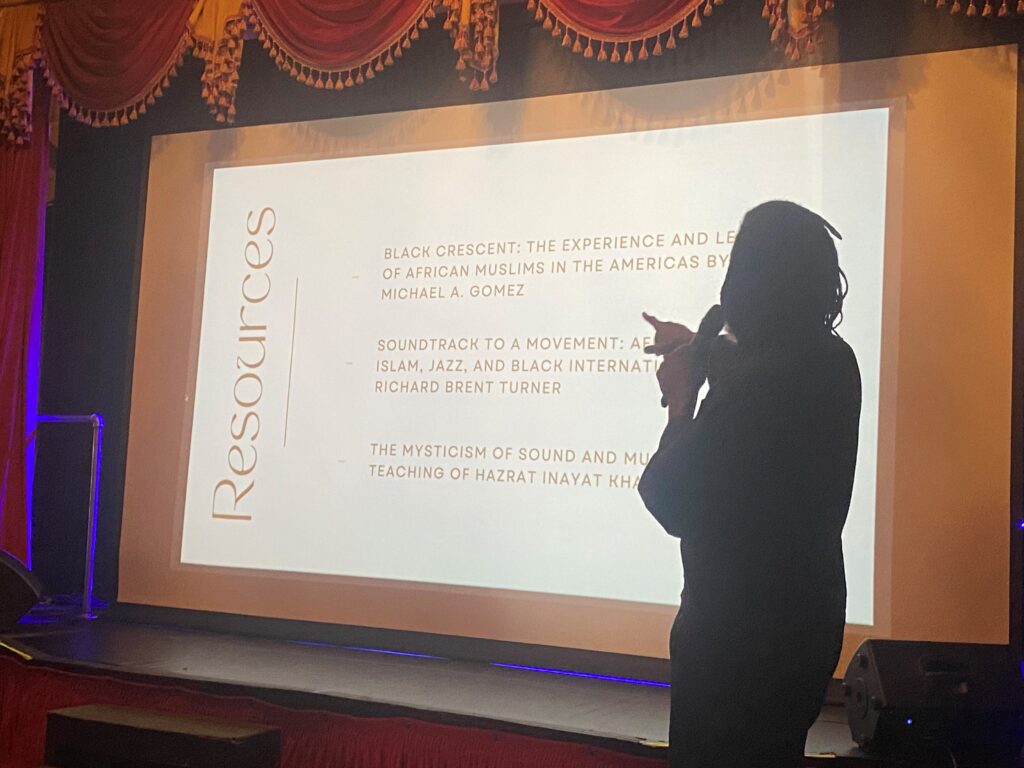
LuFuki’s presentation, “Black Muslim Influence on Music in America” connected the evolution of songs from the enslaved in America to what we know now was Blues, Jazz, Funk, and Hip Hop. The presentation delved into the lives of Muslim jazz musicians and how their conversion to Islam offered them the opportunity to free themselves from the religion of their enslavers. Additionally, in learning Arabic and speaking Arabic, early Black American Muslims were allowed into spaces that were off limits to Black Americans, but not Black foreigners during the Jim Crow era.
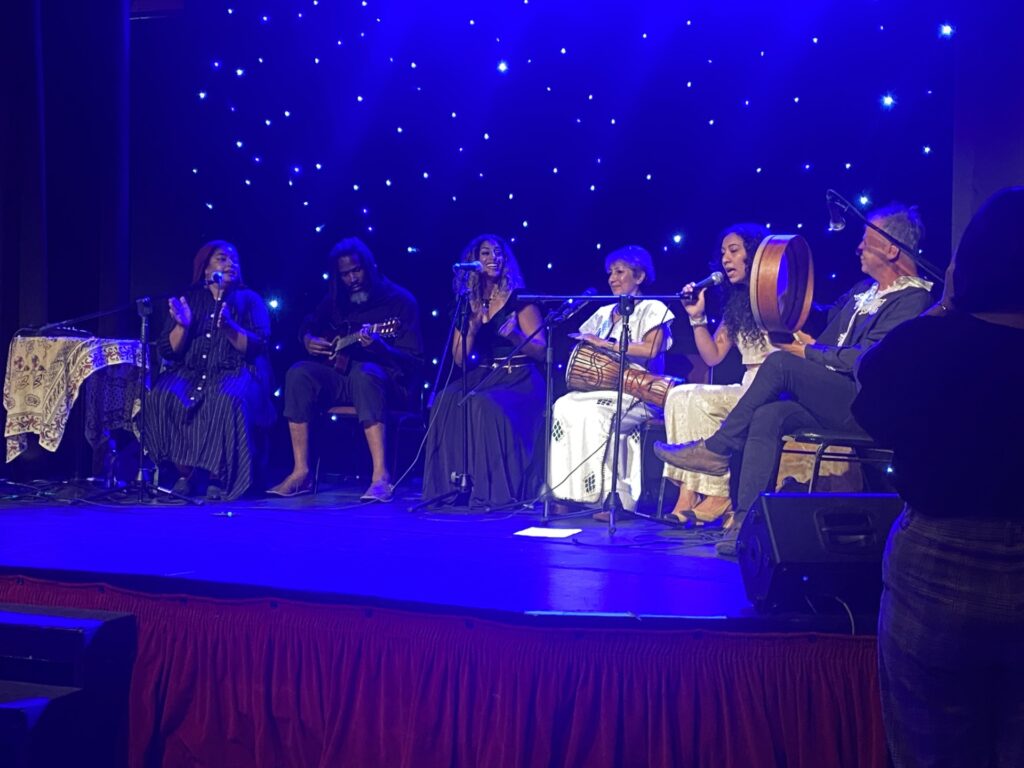
The musical performance of Blues Salawat was Tazeen Aub’s form of spiritual expression in Arabic over a blues track, followed by Ani Zonneveld’s song “In My Soul”, a new genre she refers to as Islamic Hymns. The song’s lyrics are inspired by a poem by a 7th century female Muslim Iraqi saint, Rabi’a al-Basri, set to her original composition in the classical genre. The song begins with:
“In my soul there is a temple, a shrine, a mosque, a church where I kneel. Prayer should bring us to an altar where no walls or names exist”

Aiman Khan performed “Ya Rahman, Ya Rahim” which translates to “the merciful and the compassionate”, followed by a performance by Farah Mitha “One Love, One Heart,” a song developed using a percussive rhythm from the Nubian tradition.
The event concluded with a brief question and answer session, which allowed the cohort, and Zonneveld, to address the censorship of the arts in Muslim communities in the United States and Europe, a topic that will serve as the foundation of Phase 2 of the project.
See the full program for the day here, which includes notes on each performance.
Visit the Mosaic project page here.
To learn more about Humanities for All Project Grants (and the program’s updated application process), visit California Humanities’ website.

